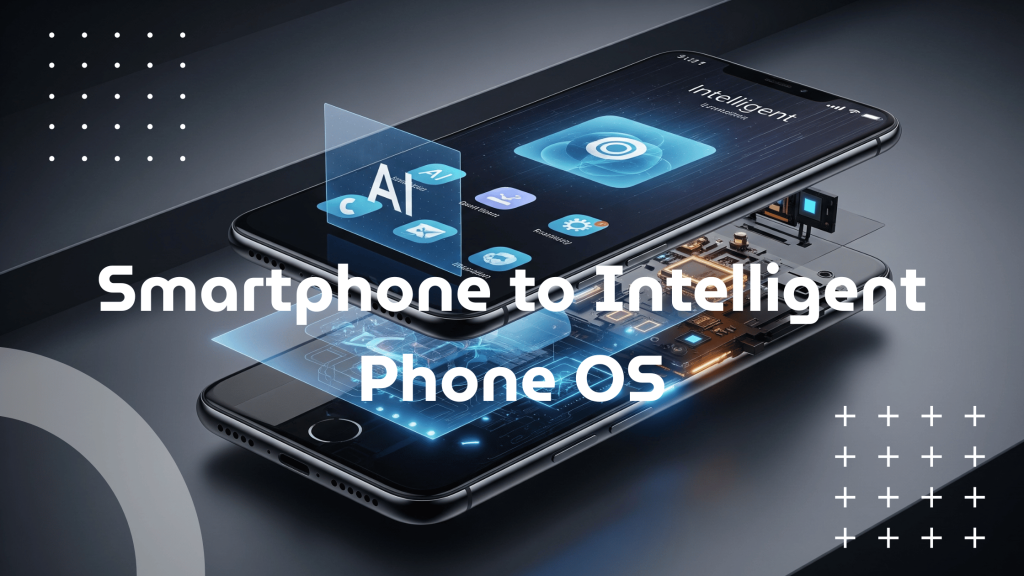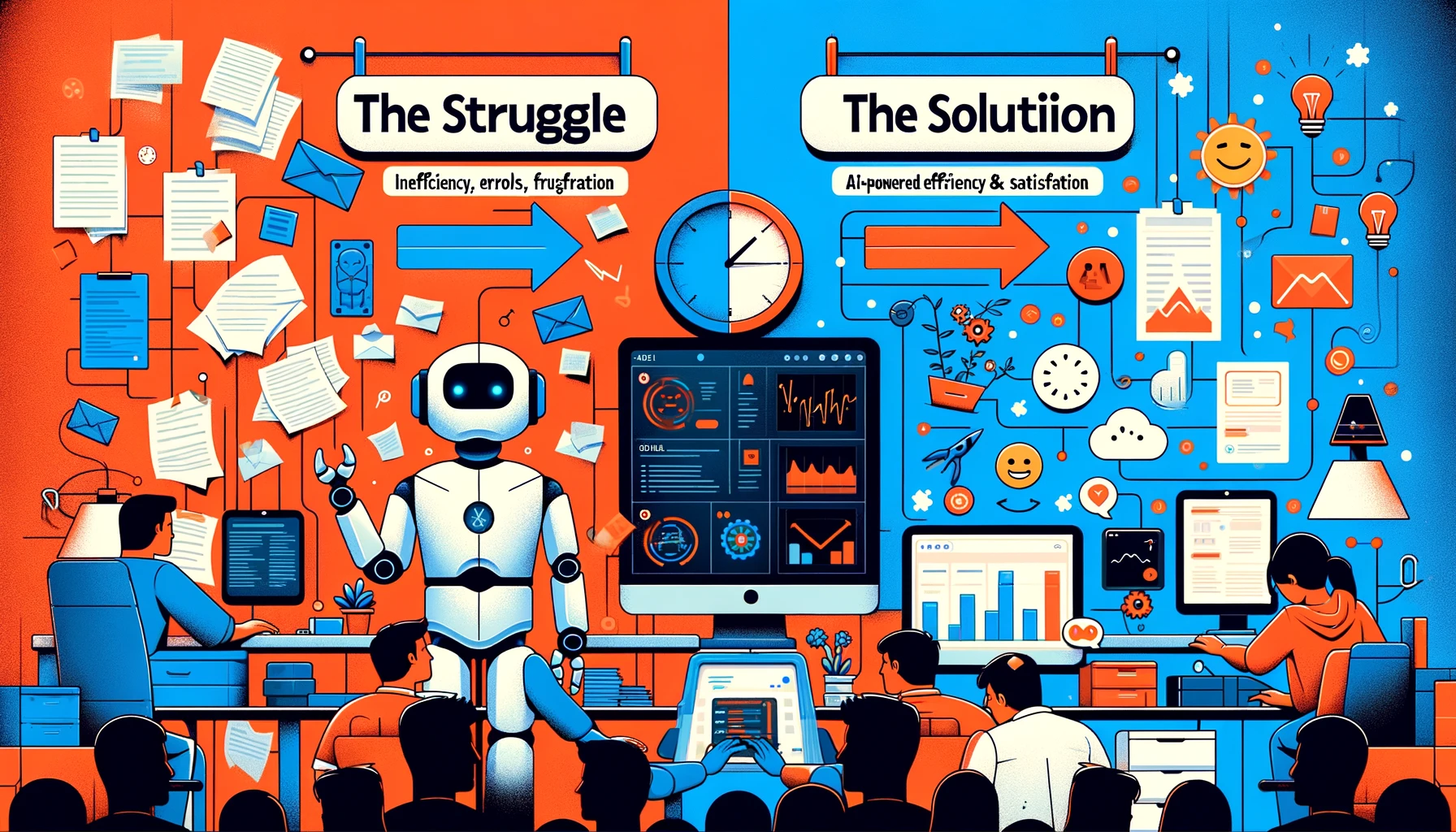From Smart Phone Era to Intelligent Phone Era – What AI-Infused Mobile OS means to developers (and users)?
June 17, 2025 0 comments
For nearly two decades, the smartphone has been an indispensable extension of ourselves. From enabling instant communication to serving as our portable entertainment hubs and productivity powerhouses, these devices have fundamentally reshaped our lives. But as we stand in mid-2025, I believe we’re on the cusp of a profound shift: moving beyond the “smart” and into what could be called the Intelligent Phone Era, characterized by an AI-Integrated Mobile OS.
This isn’t just about adding more AI features to apps Or just adding ChatGPT into Siri. It’s about a paradigm shift driven by the deep integration of Artificial Intelligence at the very core of the operating system (OS) itself.
The Smartphone Era: A Recap of “Smart” Capabilities
The smartphone era, broadly speaking, has been defined by devices capable of executing commands, connecting to vast information networks, and running diverse applications. Their “smartness” derived from their ability to:
- Execute Instructions: You tell it what to do (open an app, make a call), and it does it.
- Connect & Access: Provides access to the internet, email, social media, and countless digital services.
- App-Centric Functionality: The utility of the phone was largely determined by the apps you installed. Smart apps developed by smart minds, made the smartphones, smarter.
These capabilities, while revolutionary, still largely positioned the phone as a tool you actively wielded.
However, as the smartphone matured, many users began to feel that the pace of “smartness” innovation started to plateau. Manufacturers, while continuing to deliver impressive devices, often focused on incremental hardware upgrades – larger battery capacities, more advanced camera systems, higher screen refresh rates, or foldable designs. While these were valuable improvements, they often didn’t fundamentally alter the way users interacted with their devices or unlock entirely new levels of personalized intelligence. The inherent “smartness” of the phone, at a certain point, felt less about breakthrough functionality and more about refined specifications.
The Interim Phase: Prompt-Based GenAI – A Taste of What’s Coming
Before we fully step into the “AI-Infused Phone Era,” it’s crucial to acknowledge the concept of an interim phase in technological evolution. Just as PDAs in the late 90s and early 2000s offered a glimpse of portable computing beyond basic phones, current prompt-based Generative AI tools like ChatGPT and Gemini serve a similar purpose today. They’ve democratized AI access, showcased its immense potential, and, crucially, accustomed us to interacting with AI in preparation for deeply integrated, OS-level intelligence. These interim steps are vital bridges, acclimating users to new paradigms before the next major transformation becomes ubiquitous. They serve as an essential interim phase. They’ve helped to:
- Democratize AI Access: Making powerful AI capabilities accessible to millions without complex technical knowledge.
- Showcase Potential: Offering a tangible “flavor” of what generative AI can achieve, from drafting emails to brainstorming creative concepts.
- Accustom Users: Preparing us for more sophisticated AI interactions by building familiarity with AI-driven output and the concept of conversational AI.
While groundbreaking, these prompt-based interactions are still often a single-turn, explicit request-and-response model. The next evolution takes this much deeper.
Welcome to the Intelligent Phone Era: Anticipation, Context, and Proaction
The “Intelligent Phone Era” represents a leap forward, where your device transitions from a reactive tool to a proactive, contextually aware companion. This transformation is fueled by OS-level AI integration, enabling capabilities that go far beyond mere “smartness” or even current prompt-based interactions:
- Anticipation, Not Just Execution: Imagine your phone proactively suggesting the next step in your workflow, preparing relevant information for your next meeting before you even open your calendar, or optimizing your daily commute based on real-time factors without you asking. A simple yet powerful example: envision your phone intelligently sorting downloaded files into the correct folders, just as you would. This is the true power of AI understanding your patterns and intent.
- Contextual Understanding: AI-integrated Mobile OS grants the phone a holistic view of your environment, habits, and preferences across all applications and functions. It can understand not just what you’re doing, but why you’re doing it, leading to truly personalized experiences – from intelligent battery management to hyper-relevant content suggestions.
- Proactive Assistance & Seamless Automation: No longer will you need to manually switch between apps to complete a complex task. An AI-infused phone, with AI woven into its OS, can orchestrate multi-step workflows, automate routine actions, and offer solutions before you even formulate the problem.
- Natural & Intuitive Interaction: Advanced Natural Language Processing (NLP) at the OS level will make voice commands feel less like instructions and more like natural conversations. Imagine simply stating your goal, and the phone intelligently breaks it down into actionable steps. This moves far beyond simple prompting towards true, fluid interaction.
- Unlocking New Capabilities: This deep integration is the foundation for a wave of truly transformative features:
- On-device Generative AI: From drafting emails in your preferred tone to summarizing lengthy documents or even generating unique images based on your prompts, all processed securely on your device.
- Advanced Live Translation: Seamless, real-time translation during calls or in-person interactions, breaking down language barriers effortlessly.
- Truly Agentic AI: The emergence of AI agents capable of completing complex, multi-faceted tasks on your behalf, reducing digital friction to an unprecedented degree.
Why AI-Integrated Mobile OS is the Game Changer
The shift from app-specific AI to AI integrated at the OS level is critical because it moves beyond siloed functionalities. When AI is baked into the operating system:
- It has a unified perspective of your digital life.
- It can optimize system-wide performance and efficiency, from resource allocation to predictive maintenance.
- It fosters a consistent and coherent “intelligent” layer across all your interactions.
- Crucially, with careful design and the emphasis on on-device processing (as championed by companies like Apple with Apple Intelligence), it can offer enhanced privacy and security by keeping sensitive data localized.
Implications for the Mobile Development Community
As a mobile development agency that has navigated shifts from MIDP, J2ME, Symbian OS, and Windows Phone to the modern iOS/Android duopoly, we recognize this isn’t just an incremental update; it’s a fundamental recalibration for developers. This AI-Infused Phone Era means:
- Shift in Skill Sets: The focus moves beyond traditional app logic. Developers will increasingly need expertise in:
- AI Model Integration: Understanding how to effectively integrate and leverage OS-level AI capabilities and pre-trained models.
- Prompt Engineering & Agent Design: Crafting effective prompts for generative AI and designing “agentic” behaviors that automate complex user tasks.
- Data Privacy & Ethics: With deeper OS access, the responsibility for ethical AI deployment and robust data privacy becomes paramount.
- Performance Optimization for AI: Tuning apps to work efficiently with on-device AI accelerators and managing computational demands.
- New Development Paradigms: The “app” as a standalone silo may evolve. We’ll see more emphasis on:
- Contextual Components: Building features that seamlessly integrate with the OS’s understanding of the user’s context.
- “Agent-first” Design: Thinking about how AI agents can fulfill user needs, rather than requiring users to open a specific app.
- System-level Integrations: Deeper ties to core OS services for a more fluid and intelligent user experience.
- Continuous Learning and Adaptation: Our journey from J2ME has always been about embracing new platforms, languages, and paradigms. This next wave demands the same agility. Agencies that invest in upskilling their teams in AI, machine learning, and new OS frameworks will be best positioned to innovate and deliver value in this evolving landscape. The app development process itself will also benefit from AI tools that automate testing, code generation, and debugging.
The Hardware Hurdle: Processor, Memory, and Battery
The ambitious vision of the AI-Infused Phone era also presents significant hardware challenges. Advanced AI models demand substantial processing power, memory, and battery life. Fortunately, companies like MediaTek and Qualcomm are actively developing new generations of mobile processors with dedicated AI acceleration hardware (like NPUs) to address these limitations. Innovations in memory technology and battery efficiency are equally crucial to realizing the full potential of AI-infused phones.
The Road Ahead
We’re already witnessing the initial tremors of this shift. Google’s ongoing advancements with Gemini Nano and on-device AI for Android are clear indicators. Chip manufacturers like Qualcomm are also designing specialized Neural Processing Units (NPUs) directly into their chipsets, making on-device AI more powerful and efficient than ever.
It’s also worth noting Apple’s characteristic, albeit more measured, approach. While some might perceive their later entry into the mainstream generative AI race as a delay, it aligns with their philosophy of seamless, deeply integrated experiences where AI fades into the background. Their goal is for users to intuitively “do what they need to” without the explicit step of opening an app for every regular task. This requires meticulous integration into the very architecture and workflow of their OS, a complex undertaking that prioritizes user privacy and a polished, intuitive experience over a rapid, feature-first rollout.
Apple Intelligence is designed to be pervasive, enhancing system-wide capabilities rather than existing as isolated AI apps. In this coming era, one could even argue that the “i” in iPhone (and iOS) will take on a profound new meaning, evolving from its original ties to “internet, individual, instruct, inform, and inspire” to also distinctly signify “Intelligence” – woven into the very fabric of the user’s personal context and workflow.
Of course, this journey isn’t without its considerations. Privacy remains paramount, and ethical frameworks for AI development will be more critical than ever. Addressing the hardware demands will be a continuous area of innovation.
However, the trajectory is clear. The “smartphone era” brought us connectivity and a world of apps. The emerging “AI-Infused Phone Era,” powered by deeply integrated OS-level AI, promises devices that don’t just react to our commands, but anticipate our needs, understand our context, and proactively enhance every facet of our digital lives.
What are your thoughts? Do you foresee this “AI-Infused Phone Era” as the next major leap in mobile technology, and how do you think it will reshape the development landscape?
About us:
Macronimous is a global web and mobile application development company. Since 2003, we have successfully developed and supported applications for hundreds of clients worldwide
Related Posts
-
January 24, 2024
Why You Should Use ChatGPT Rather Than Google Search – ChatGPT vs Google Search
ChatGPT vs Google Search? Comparing ChatGPT with Google Search might initially seem unusual, but this comprehensive guide will illuminate why and when switching to ChatGPT can be more advantageous than relying solely on Google Search. In today's era, Google has long been the go-to platform, for accessing information. However, with
ChatGPT, Google SEO, Search Engine Optimization, SEO, Welcome0 comments -
March 12, 2024
AI in Web Development Agencies
Are you a web development agency feeling buried under complex projects, tight deadlines, and mountains of code? At Macronimous, a Web Development Agency, we're passionate about exploring how AI can be effectively used in web development agencies. Hence, this blog! Do you ever wonder if there's a more efficient way


